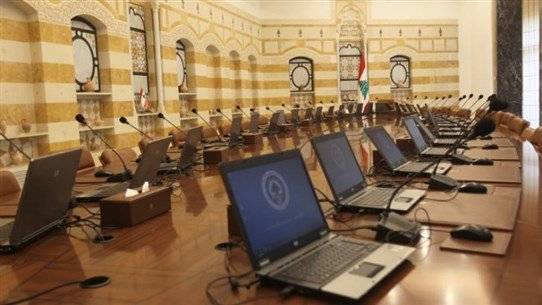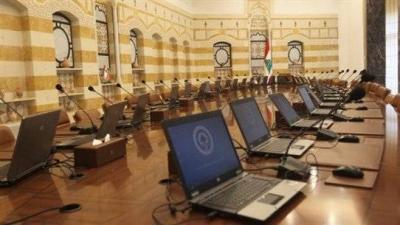It was not easy for President Michel Aoun and the head of the Free Patriotic Movement, MP Gebran Bassil, to swallow the bitter cup of assigning President Najib Mikati to form a new government. This was evident in Bassil's stance, directing his concerns to allies who ignored proposing another name, which may lead to utilizing all means to strengthen his negotiating position in the formation consultations. His most significant leverage is President Aoun's signature, which informed sources say "will not allow Mikati to have a government without Bassil securing a substantial share."
Alongside this perspective, sources noted that both Bassil's statements and Mikati's remarks on activating the caretaker government reflect a concession to the reality of a true crisis between the two parties, convincing them of the impossibility of forming a government in the near future. They indicated that the formation process would be tautly held by various strings, each being used to cement governmental influence, with the primary visible confrontation being between Aoun and his team on one side and Mikati on the other. However, everyone acknowledges that the real problem lies in the resurgence of intense disagreements between Parliament Speaker Nabih Berri and President Aoun and Bassil, which encompass the government and other issues.
It became clear that mediation by an official authority did not succeed in arranging a direct dialogue between Mikati and Bassil, with relations remaining severed between the two sides both before and after the assignment. Aoun and Bassil's stance on the idea of a cabinet reshuffle is linked to the necessity of having a fully legitimate government by gaining the parliament's confidence to avoid complications in the event the parliament fails to elect a new president.
While most parties express apprehension regarding this issue, sources connected to Presidents Berri and Mikati indicate that they are discussing a constitutional interpretation asserting that if a new government cannot be formed and the presidential election faces delays as constitutionally scheduled, the current government would be deemed fully empowered due to the lack of an alternative, and thus it could manage the country and assume the powers of the presidency. This notion is rejected by many constitutional experts, who regard it as "an unprecedented chapter in the thinking aimed at impeding the formation of a new government since a clear settlement cannot be reached with Aoun's team," as stated by an informed source.
As consultations with parliamentary blocs begin next Tuesday, prominent sources revealed that "preliminary side discussions will take place starting tomorrow Sunday to explore several options." Regarding the idea of a cabinet reshuffle, sources indicated that the real disagreement currently revolves around whether the president-designate seeks a broad change involving both names and portfolios. Speaker Berri told his contacts that he interprets a cabinet reshuffle as a replacement of each representing team member if there is a need for it, provided there is no disturbance to the existing sectarian and denominational distribution of portfolios. Meanwhile, there seems to be a willingness from the Free Patriotic Movement to allow a reshuffle of ministries as well to prevent assigning any ministry exclusively to one sect, particularly referring to the Ministry of Finance. Mikati has not yet announced his final vision for any desired changes.
With other forces, particularly the Lebanese Forces and the Progressive Socialist Party, refusing to name Mikati to participate in a national unity government, some independent MPs, including Abdul Rahman al-Bizri, have declared the need to confront any government Mikati forms. Consequently, a "commotion" prevails in the relationship between Mikati and Jumblatt. There are additional interpretations suggesting that MP Taymour Jumblatt completely rejects participation in any government and that his insistence on naming Nawaf Salam was not only about harmony with external parties but also a means to exit Mikati's government. Sources indicate that the son of Jumblatt raised the issue of the Socialist representatives in the caretaker government halting their work very quickly, reflecting a new strategy that is uncertain in its enforceability against his father's wishes.
As for the "Change" MPs, who emerged from the compulsory parliamentary consultations exhausted and fractured, their unity in a bloc or unified parliamentary framework is at stake. They exhibited political fatigue that called for a "24-hour break to catch their breath," as their circles expressed. This disarray stems from "poor management of internal dialogues among them," in addition to "failure to agree on a mechanism for decision-making, as the MPs have become hostages to their populist positions." Therefore, in light of the recent results, it was decided to hold a retreat among the 13 colleagues. While the time and place remain pending, "Al-Akhbar" learned that the retreat would serve as a "project for a parliamentary-administrative workshop," with among the discussed topics being an organizational restructuring to distribute tasks among MPs and restore credit to the secretariat, agreeing on a voting mechanism within the bloc while leaving the leadership of the bloc for side discussions. There are indications of differing viewpoints on this matter: one group calls for an election mechanism for the president every six months, while the other proposes a monthly rotation for the presidency of the bloc.
On another front, after the 24-hour break, the MPs are expected to meet again on Sunday evening (tentatively) to discuss strategies for the non-binding parliamentary consultations hosted by the parliament at the beginning of the week. In this context, "Al-Akhbar" learned from sources at the MPs that the prevailing direction is to inform President-designate Najib Mikati that they do not wish to participate in the government or name any representative on their behalf "because it is a government of political quotas representing the system's parties." One of these MPs stated that "the session with Mikati on Monday will determine the approach towards him, even though it is already quite clear," affirming that "the decision to reject participation in Mikati's government will later translate into a decision to "withhold confidence" from it if formed.




